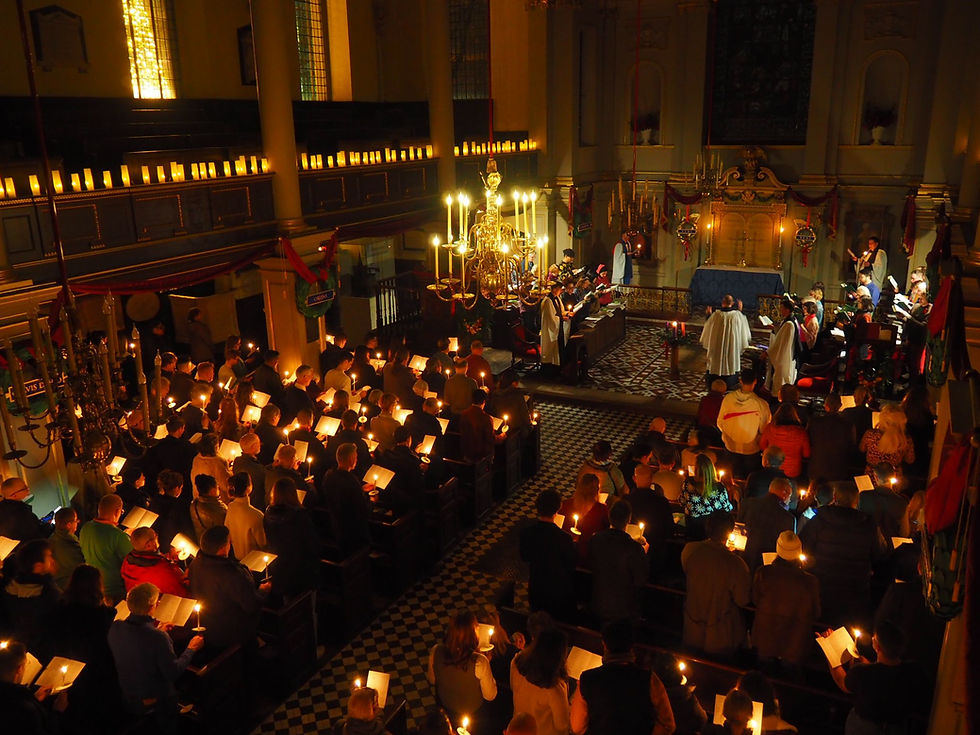On being liberal
- St Giles Online
- Aug 4, 2019
- 4 min read
The crisis over Antisemitism within the Labour Party refuses to go away and it troubles me. The spoken and written incidents of prejudice have been compounded by an institutional inability (some say unwillingness) to respond appropriately. Long-standing Jewish members of the Labour Party have resigned or drifted away, and prominent religious and secular members of the Jewish community have voiced profound misgivings at the failure of the leadership to expose and root out perpetrators. This will stain the reputation of the Labour movement for a long time to come.

I was raised and nurtured in a Labour household. My father’s father, they were both from working households in the Scottish midlands, had been one of the original members of the Independent Labour Party, he was imprisoned as a conscientious objector in the first world war, and later in life was a political agent, running election campaigns in Hull. My father took after him, and for all his adult life was active in local government in Lambeth, being a ward councillor, chairman of committees, and for one year the Mayor of Lambeth (I was 15 years old at the time and was acutely embarrassed by it all), before going on to represent the borough at what was then called County Hall, before the Greater London Council was disbanded in the 1980s. Politics was in the family blood and I absorbed it, assented to its leftward leanings, and always voted for Labour candidates; to vote for anyone else was unthinkable.
My father died just as the generation of Ken Livingstone et al came to prominence in the Labour movement and with it a far more outspoken voice than in the past, more sure of itself, more strident, more grasping at power, more self-consciously radical and, odd as it may sound, more political. I never observed my father or those he served with being overtly political, or wanting to damage the reputation of others. Their labour-ism was much milder by comparison, centred on public provision for neighbourhood communities. I cannot imagine him adapting easily to the political world of the 1980s or 1990s, let alone today.
Racism was no stranger to the streets of Lambeth in those far off days, of course, and long, hot summers could cause tensions to rise in the back streets of Brixton. I’d like to think the passing of the years has altered the causes of these tensions, and by and large I think it has. It has not solved them, for inequalities of wealth and position remain, but they have been mitigated. Racism, like antisemitism and also homophobia, knows how to lie low, out of public view for a while. But with fresh (political) encouragement (such as we have witnessed of late), antagonisms can break out all over again. Being liberal was never so uncertain a calling.

The international labour movement has a long and complicated relationship with the Jewish tradition, and has been known to pejoratively connect Jewish financial practice with the worst excesses of industrial capitalism. Perhaps some of this still lingers in the minds of those for whom the class war remains to be fought. In addition to this, however, and more particular to the present crisis, is the malign connection made between actions taken by the State of Israel against its neighbours and simply being Jewish, wherever you happen to live. For some reason the Labour movement has been incapable of accepting the definitions of antisemitism widely accepted by others, and what’s more has simply not taken seriously enough the malicious comments of its members when they have blurred the distinction between the actions of a government and the identity of people, who may well be the Jewish family living next door or the colleague working in the same office or the members of the synagogue in town. Harsh words wound people and goad intemperate people to act cruelly.
Equally, though, and for far longer, the Christian church has had a tortured relationship with its parent faith, Judaism, and there can be no hiding from the fact that we Christians have been as antisemitic as the worst of them. Some scriptural references blaming ‘the Jews’ for putting Christ to death have lent themselves to prejudice in certain minds and have led to acts of violence and the persecution of oppressed Jewish communities over the centuries in western Europe. If, the present crisis within the Labour movement disturbs us, it disturbs us also by this remembrance of the hinterland of our own past.
More than ever I know myself to be a Christian of creedal orthodoxy and a liberal ethic, who some time ago lost all affiliation with the politics of his upbringing but without finding any real alternative. I still favour public over private provision for life’s essentials, and communitarian over privatized solutions, but beyond that am more simply against those who victimize and de-humanise others in the name of their own version of freedom and dehumanize those others. By comparison, being "liberal" doesn’t seem like much, but I like to think it is. Grace directs me there: the forgiven must forgive, the found must seek, those who have received freely . . . and so on . . . I’m sure you get the drift.




Comments